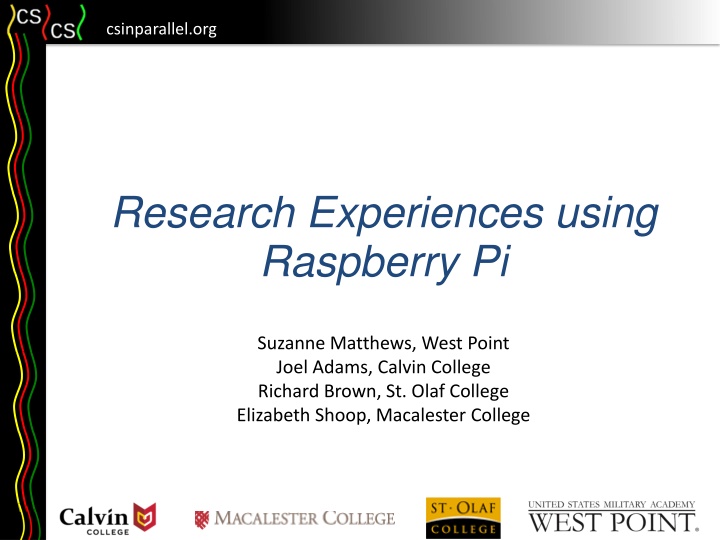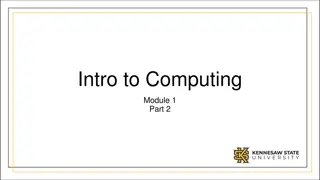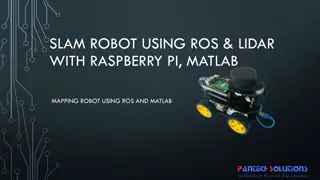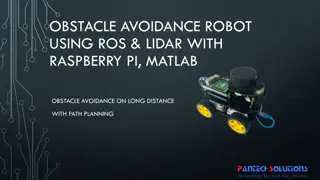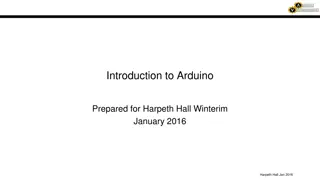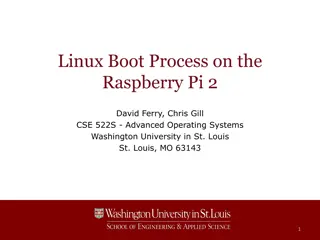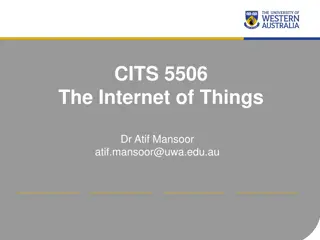Research Experiences using Raspberry Pi
Suzanne Matthews, from West Point, and her colleagues at various colleges have successfully utilized Raspberry Pi clusters for research projects, resulting in peer-reviewed publications. The projects include simulating smart systems, password cracking comparisons, and anomaly detection in power grids, showcasing the potential of Raspberry Pi in parallel programming and networking education.
Download Presentation

Please find below an Image/Link to download the presentation.
The content on the website is provided AS IS for your information and personal use only. It may not be sold, licensed, or shared on other websites without obtaining consent from the author.If you encounter any issues during the download, it is possible that the publisher has removed the file from their server.
You are allowed to download the files provided on this website for personal or commercial use, subject to the condition that they are used lawfully. All files are the property of their respective owners.
The content on the website is provided AS IS for your information and personal use only. It may not be sold, licensed, or shared on other websites without obtaining consent from the author.
E N D
Presentation Transcript
csinparallel.org Research Experiences using Raspberry Pi Suzanne Matthews, West Point Joel Adams, Calvin College Richard Brown, St. Olaf College Elizabeth Shoop, Macalester College
csinparallel.org Research with Pis at West Point We have used Raspberry Pis for the last three years for various research projects. Year 1 and Year 3 involved students. Year 2 was a faculty collaboration. To date, the projects have yielded two peer reviewed publications. Cluster case design open-sourced by Matthews and Blackmon in 2015. http://www.thingiverse.com/thing:892959
csinparallel.org Year 1: ROAMS (2014-2015) 21-node Raspberry Pi B+ cluster Simulated a smart mortar system with 20 rounds in the magazine and a magazine server Server communicates with smart rounds using MPI 2015 Journal Paper with two faculty and one student co- author
csinparallel.org Year 2: Password Cracking (2016) 128-core Raspberry Pi 2 cluster (32 nodes) 128-core Parallella cluster (8 nodes) Compared performance of password cracking on each cluster using JtR+MPI hybrid Also used high-end laptop for performance analysis Pi and Parallella cluster outperformed laptops. Perhaps can be used for other Cyber operations? 2016 conference paper with 3 faculty co- authors
csinparallel.org Year 3: Power Grid Anomaly Detection 128-core Raspberry Pi 2 cluster (32 nodes) Data is gathered from a 1000:1 scale emulation power grid Using Pi cluster to detect fluctuation in data using custom algorithm Pthreads+MPI hybrid Ongoing research with two faculty and two cadets. Paper in the works.
csinparallel.org Reflection Projects have produced two papers with 3 distinct faculty co-authors and 1 student co-author. Great system to drive home networking principles along with parallel programming. Students have to deal with NFS issues, ensuring there is connectivity to all devices, and other types of hardware issues, in addition to learning parallel programming. This can be a double-edged sword! Students and faculty alike enjoy the hands-on aspect Clusters have a definite cool factor that seems to attract students.
